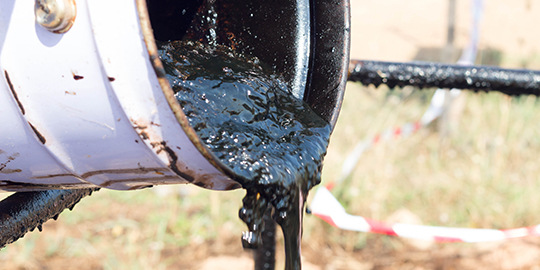
Iran’s nuclear deal with world powers to fuel India’s crude oil import, say experts
Himanshu Vatsa | The Dollar Business
The nuclear deal between Iran and the US-led six-nation group is expected to have positive impact on India’s energy sector with increased crude oil imports from the Islamic country, say experts. The five permanent members of the United Nations Security Council (UNSC) —the US, UK, France, Russia, and China— along with Germany (also known as P5+1) agreed to ease trade restrictions on Iran to keep a check on Iranian nuclear programme. As per the deal signed in Vienna on Tuesday, easing of sanctions will enable Iran to export its crude oil resources. India which had opposed to sanctions on Iran has been engaged with various trades, especially in agriculture and crude oil, for long. Since Iran was isolated from the international market, Indian exporters used to have an edge in the Iranian market. As the western countries had imposed a ban on Iranian oil export, India’s import also reduced to 11 million tonnes in 2014-15 from more than 21 million tonnes in 2009. Experts are of the view that with the inclusion of Iran in the mainstream, Indian refiners can look forward to sourcing crude from that country at cheaper rates and cut their imports from Latin American suppliers. "We will, in time, see an increase in exports of Iranian crude oil to India and the world and India-Iran trade scaling newer heights”, said Jyotsna Suri, President, FICCI (Federation of India Chambers of Commerce and Industry). The new world order will also pave the way for the proposed India-Pakistan-Iran gas pipeline. “This nuclear agreement also has the potential to revive the long- pending gas pipeline projects from Iran to India. We hope Iran is able to expedite the recovery of its crude export capacity following the easing of sanctions and continue its valuable contribution to the fulfilment of India’s energy needs,” Suri added. According to the Federation of Indian Export Organisations (FIEO), the global crude oil prices which has been witnessing continuous fall will see further decline with the additional supply of Iranian crude oil in the market. “Once Iran starts trading in crude oil, the prices will go down further and it could catalyze the recession already prevailing in the global market,” FIEO President S C Ralhan had told last week while speaking to The Dollar Business. He also said that India’s engineering goods have gained competitive edge in Iran during the past few years when European suppliers were away from that country. And, despite increased competition after lifting of sanctions, Indian machine tools and diesel engine will continue to enjoy a major share of the Iranian import. However, the new deal will not have any major impact on India’s export of Basmati rice to Iran. “Sanctions have nothing to do with India’s rice trade with Iran. There will not be much impact on the export of Indian Basmati rice. Iran will continue to import rice in the range of 9-10 lakh tonnes a year,” R Sundaresan, Executive Director of All India Rice Exporters Association (AIREA), told The Dollar Business. Apart from rice, Iran also buys a large quantity of soya oil and other agricultural products. But Indian exporters are already facing tough competition in Iran due to falling global commodity prices and huge supply of edible oil from Argentina and other countries.
July 15, 2015 | 4:58 pm IST.






 to success.
to success.